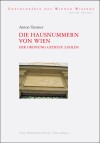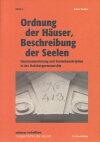Alessandro Stanziani: The Traveling Panopticon
In der aktuellen Ausgabe von CSSH ist folgender Artikel erschienen:
Stanziani, Alessandro: The Traveling Panopticon: Labor Institutions and Labor Practices in Russia and Britain in the Eighteenth and Nineteenth Centuries, in: Comparative Studies in Society and History, 51.2009, S.715-741.
doi:10.1017/S0010417509990119
Das Abstract lautet wie folgt:
Between 1780 and 1787 Samuel and Jeremy Bentham were asked to manage a large Russian estate owned by Prince Grigorii Potemkin, one of the closest advisors of Catherine II. They had to face two related but distinct problems: Russian peasants were unskilled, while British skilled workers and supervisors were hard to control. It was the problem of controlling skilled English workers in Russia (and not the Russian serfs) that led the Bentham brothers to reflect on the relation between free and forced labor, and then between labor and society. Before and after Foucault, the Panopticon has been seen as a response to social deviance, and in relation to prisons and the emergence of a global surveillance system in modern societies. According to Foucault, the Panopticon is not just a model for institutions, but something whose principles are those of power in society at large. I want to challenge this view by arguing that the Panopticon project actually was a system for controlling wage labor, which drew inspiration from a particular image of Russian serfdom and from the Bentham brothers' experiences in that country. Those experiences have been the subject of several papers and books. The first aim of this paper is not to recall these, but rather to integrate them into a broader intellectual debate. In particular, I will evoke the origins of the Benthams' experiences in Russian, British, and European debates of the period about the legal status of labor. The way that “western” thought conceived of labor in general and positioned itself vis-à-vis Russia necessitates a reexamination of the thesis that the principal schools of western thought were misunderstood in Russia. I will argue, instead, that Russian authors and reformers relied on ambiguities in western thinking about labor when they advanced their own images of serfdom and proposals for reform.
Stanziani, Alessandro: The Traveling Panopticon: Labor Institutions and Labor Practices in Russia and Britain in the Eighteenth and Nineteenth Centuries, in: Comparative Studies in Society and History, 51.2009, S.715-741.
doi:10.1017/S0010417509990119
Das Abstract lautet wie folgt:
Between 1780 and 1787 Samuel and Jeremy Bentham were asked to manage a large Russian estate owned by Prince Grigorii Potemkin, one of the closest advisors of Catherine II. They had to face two related but distinct problems: Russian peasants were unskilled, while British skilled workers and supervisors were hard to control. It was the problem of controlling skilled English workers in Russia (and not the Russian serfs) that led the Bentham brothers to reflect on the relation between free and forced labor, and then between labor and society. Before and after Foucault, the Panopticon has been seen as a response to social deviance, and in relation to prisons and the emergence of a global surveillance system in modern societies. According to Foucault, the Panopticon is not just a model for institutions, but something whose principles are those of power in society at large. I want to challenge this view by arguing that the Panopticon project actually was a system for controlling wage labor, which drew inspiration from a particular image of Russian serfdom and from the Bentham brothers' experiences in that country. Those experiences have been the subject of several papers and books. The first aim of this paper is not to recall these, but rather to integrate them into a broader intellectual debate. In particular, I will evoke the origins of the Benthams' experiences in Russian, British, and European debates of the period about the legal status of labor. The way that “western” thought conceived of labor in general and positioned itself vis-à-vis Russia necessitates a reexamination of the thesis that the principal schools of western thought were misunderstood in Russia. I will argue, instead, that Russian authors and reformers relied on ambiguities in western thinking about labor when they advanced their own images of serfdom and proposals for reform.
adresscomptoir -
Arbeit - Fr, 18. Sep. 2009, 09:44








